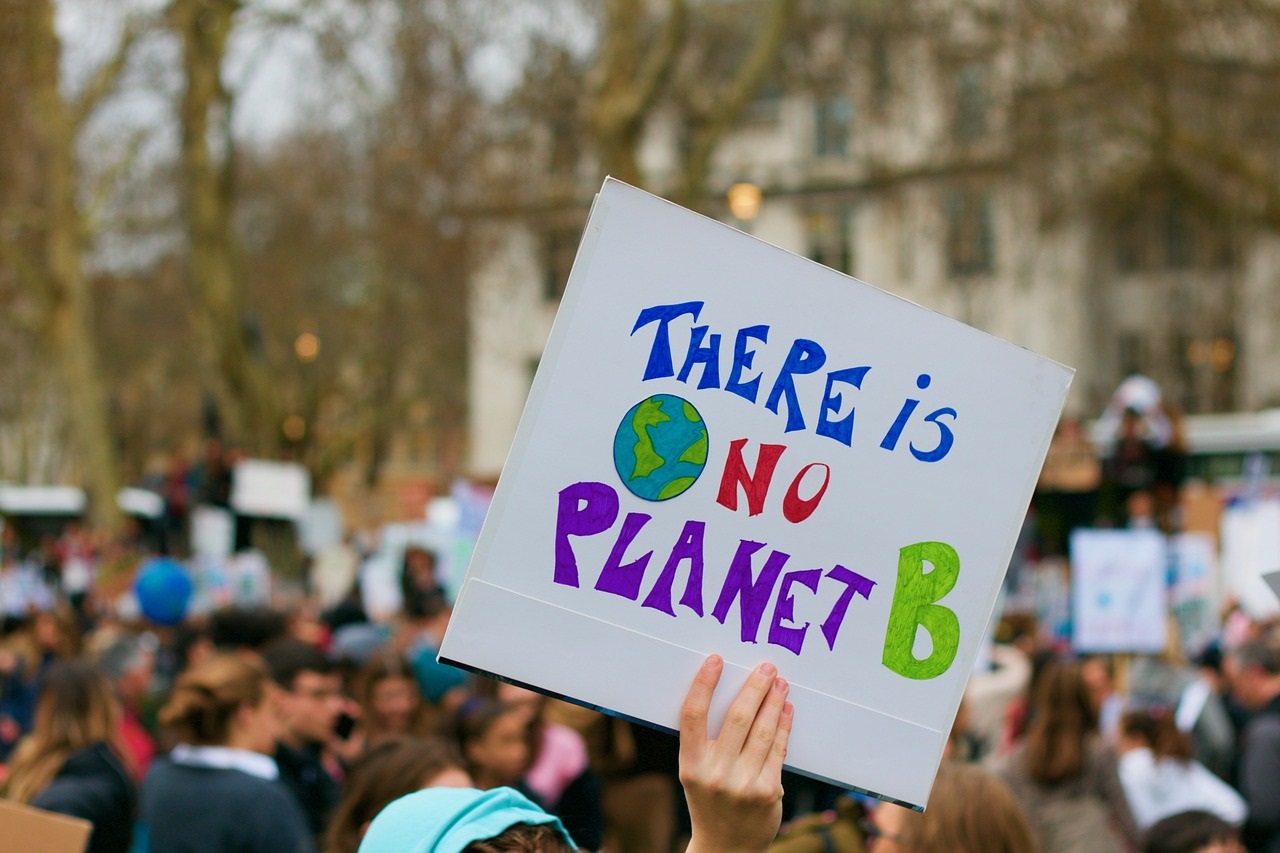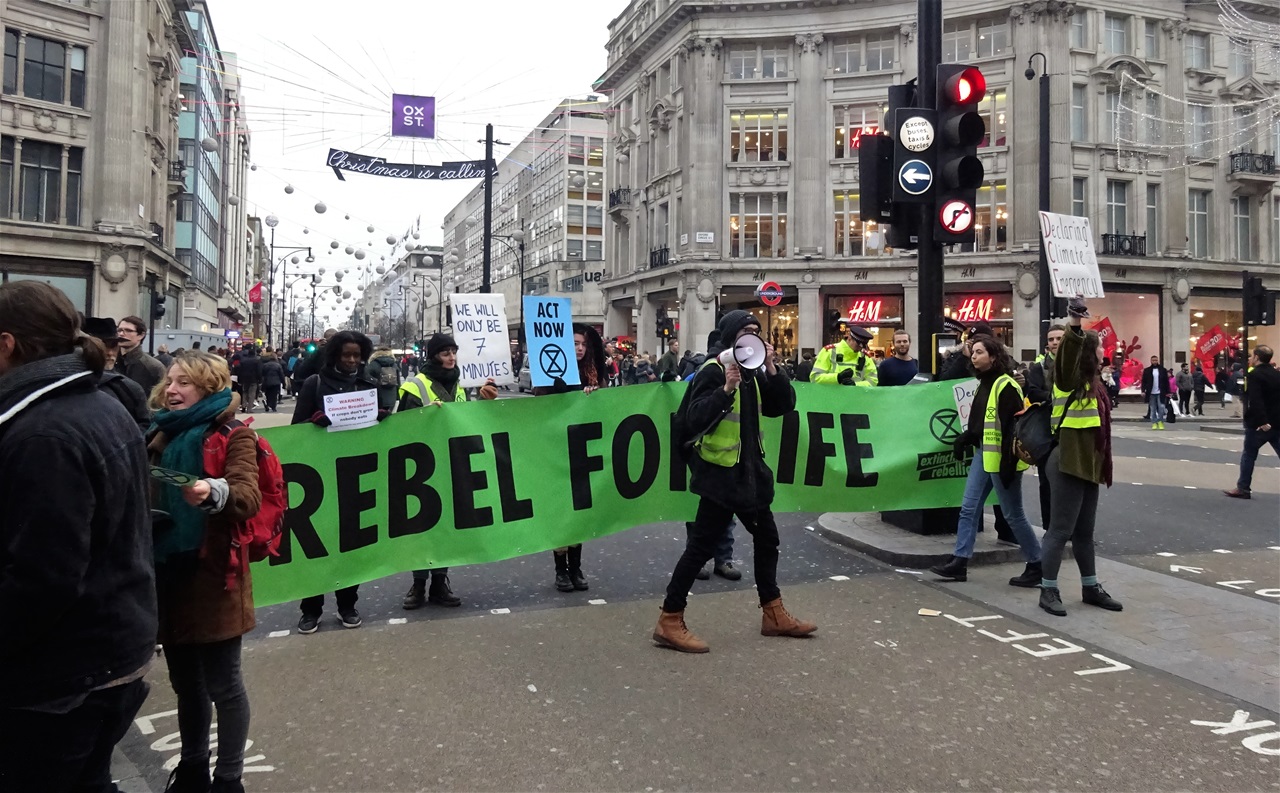Blog Post 5
The Environment and the Marks of Mission
Paper co-written with John Hughes, DEO of Manchester Diocese, for discussion at Church of England Environmental Working Group and the DEO Conference.
The Five Marks of Mission:
The mission of the Church is the mission of Christ...
1. To proclaim the Good News of the Kingdom
2. To teach, baptise and nurture new believers
3. To respond to human need by loving service
4. To transform unjust structures of society, to challenge violence of every kind and pursue peace and reconciliation
5. To strive to safeguard the integrity of creation, and sustain and renew the life of the earth
The fifth mark of mission is the mark which most explicitly provides the missionary rationale for engaging with environmental issues. It’s position at number five is rather unfortunate, implying that it is perhaps the least important and something of a "Cinderella" in comparison with the others. Such is the present threat to the integrity of creation that “Cinderella” is beginning to be recognised as “the belle of the ball,” - the missionary priority upon which all other marks depend. Each of the marks of mission demands ecological engagement and will be enriched and deepened by it.
FIRST MARK OF MISSION:
To proclaim the Good News of the Kingdom
“He said to them ‘Go into all the world and preach the gospel to all creation’” Mark 16:15
If we wish “to proclaim the Good News of the Kingdom”, we need to earn a hearing. Authenticity and credibility are prerequisites. Working on environmental projects, campaigning to protect the planet, speaking out on ecological issues can give us precisely these, generating the good will, social capital and trusted relationships that prepare the way for sharing the good news. Sensitive evangelism addresses context, presenting the Gospel message in a way which is relevant to those being addressed.
Today’s context is an ecological crisis which threatens the future of humanity. Is it possible to proclaim “good news” which does not address this? For many, young people in particular, this is the primary concern, but are we addressing it in our evangelism? Historically, the Gospel has been presented in anthropocentric terms focussing primarily on “good news for all people”. (Luke 2:10), and “making disciples of all nations” (Matt 28:19) but in Mark, the disciples are commissioned to “proclaim good news to all creation.” (16:15) What would good news for the entire cosmos look like?
SECOND MARK OF MISSION:
To teach, baptise and nurture new believers
“If you knew the gift of God and who it is that asks you for a drink, you would have asked him and he would have given you living water.” John 4:10
We teach, baptise and nurture so that we may be formed into the likeness of Christ, adopt a distinctively Christian ethic and take our unique place in the community of believers. To help us do this we familiarise ourselves with scripture and tradition and reflect on the connections between our understanding of faith and how we live our lives. Once again context is crucial. Is the teaching and nurturing that is being provided equipping Christians and the Christian community to respond to the challenges and dilemmas that the ecological crisis presents? Are we able to articulate a scriptural response, or our ethical responsibilities? Are we being helped to relate our faith to actions such as reducing carbon or plastic usage? Is environmental responsibility been taught as part of Christian distinctiveness?
There are many ways this might be achieved, through liturgy, preaching, small groups, learning communities, children and young people’s work, theological & formational training, and spiritual direction. The rite of baptism gives us opportunities to teach about repentance and new life. The water of the Jordan is now too polluted to use for baptism, yet water itself is a symbol of rebirth and renewal. Through it we can speak words of hope, forgiveness and new beginnings. We work and pray for a time when rivers are restored and the seas are not choked with plastic.
THIRD MARK OF MISSION:
To respond to human need by loving service.
“He went to him and bandaged his wounds, pouring on oil and wine. Then he put the man on his own donkey, brought him to an inn and took care of him.” Luke 10:34
This mark is explicitly concerned with people but ecological concerns are still prominent. Climate volatility, loss of biodiversity and concern about the future, create human need. This can range from those who are unable to produce a harvest, or who have lost their homes to flood in this country and around the world, to those who are mourning the loss of countryside and species and need to lament. Many people do not have ready access to “green space” despite this being shown to be helpful to well-being and mental health, the local churchyard might well fill this deficit. Those who are anxious and fearful about the future, who want to change to a more sustainable lifestyle but do not know how and indeed those who are angry and resistant to necessary changes all have needs which the Church is well placed to meet, particularly if able to anticipate future needs and take a proactive approach.
FOURTH MARK OF MISSION:
To transform unjust structures of society, to challenge violence of every kind and pursue peace and reconciliation.
For God was pleased to have all his fullness dwell in him, and through him to reconcile to himself all things. Col 1:19,20
The ecological issues we face today are justice issues. The global poor are disproportionately affected and those countries which have benefited least from exploitation of the Earth’s resources bear a disproportionate amount of the cost. There is also the question of inter-generational justice when we note the extent of the problems we are bequeathing to the next generation. We might even consider our actions and inactions as theft from the future.
As the crisis worsens it is anticipated that competition for increasingly scarce resources will make peace even harder to achieve. Clearly the Church has a prophetic role here, but if we are truly to advocate for the Earth and its people and call others to account, we must be able to name humanity’s treatment of the Earth for what it is – abuse and violence, which has fractured the relationship between people and the planet which sustains them. Christ brings reconciliation to all things but reconciliation between people and the Earth look like?
FIFTH MARK OF MISSION:
To strive to safeguard the integrity of creation, and sustain and renew the life of the earth
“Whenever the rainbow appears in the clouds, I will see it and remember the everlasting covenant between God and all living creatures of every kind on the earth….This is the sign of the covenant I have established between me and all life on the earth” Gen:9 16,17
We are rightly concerned about the abuse of children and vulnerable people and are concerned to “safeguard” against it. The Earth has been and continues to be abused, raped, objectified and exploited and “striving to safeguard the integrity of creation” must be approached with a similar rigour. The predictions about the future of life on this planet make for alarming and depressing reading and the need to repent of the past and live more sustainably is abundantly clear. It would be easy to despair, but our faith in a Saviour who brings healing, renewal, forgiveness and restoration not only for people, but for the whole earth gives us grounds for hope. As a landowner, the Church is well placed to take a lead in ecologically sensitive land management, not forgetting the thousands of Churchyards which could be “arks for vulnerable species”.
Blog Post 4
Common Ground - Can Christians learn from the Environmental Activists?
An article for Green Christian Magazine
Frequently ignored, sometimes ridiculed yet passionate about a powerful and important message, environmentalist activists and Christians have more in common than a shared desire for ecological health and social justice. For environmentalists at least, the tide appears to be turning. People are beginning to sit up and take note in an unprecedented way.
In part this must be due to the urgency of the situation, with last year’s report from the United Nation’s Intergovernmental Panel on Climate Change spelling out both the scale and the time-critical nature of the action we must take to avoid disaster. Persistence too, will have played a part, just as water eventually has an effect on a stone, so the repeated warnings given over decades are finally starting to be heard. However, it took the perfect storm of a David Attenborough documentary, the civil disobedience of Extinction Rebellion (XR) and the tenacity of the 16-year-old school-striker Greta Thunberg to force the issue of the climate emergency to the top of the news agenda.
It is ironic that at a time when the Church is struggling to communicate its message to the masses, so many of the approaches successfully adopted by climate change activists can be found within the Christian tradition. Activists can be seen as the modern-day heirs of the Biblical prophets, who were both foretellers, making predictions about the future, and forth-tellers, commenting on the political and moral issues of the day. Often these two roles were intertwined as their predictions described the inevitable consequences if the behaviour they were denouncing continued. Gifted with a “God’s-eye view”, they were tasked with calling people to repentance, helping them to realise the error of their ways and urging them to live differently. Much of this resonates with the work of modern day protestors, who may not necessarily consider themselves to have a “God’s-eye view” but may well be espousing one any way. It is hard to imagine God taking issue with an agenda that demands justice for his created world, the planet’s poorest people and generations yet to come.
The message is not a new one. Greta Thunberg’s reproach to the UK parliament, “The future has been sold so that a small number of people can make unimaginable amounts of money” is reminiscent of St Ambrose of Milan, who argued in the 4th century that “The world has been created for everyone’s use, but you few rich are trying to keep it for yourselves. For not merely the possession of the earth but the very sky, the air and the sea are claimed by the rich few”.
Words are not the only tool of the prophet. Actions are key. We might think of the semi-naked protest which took place at the House of Commons as a modern phenomenon, but the Biblical prophets got there first. Both Micah and Isaiah re-enforced their prophetic message by dispensing with clothes and shoes (Micah 1: 8, Isaiah 20: 1-6). Jeremiah famously smashed an earthenware jar (Jer 19:10) and Jesus himself engaged in what can be described as both enacted prophesy and civil disobedience in his triumphal entry to Jerusalem and cleansing of the temple. So, gluing oneself to a train, and even holding “die-ins”, where numerous people lie on the ground and refuse to move, seem to be part of a long tradition; after all, didn’t poor Ezekiel lay on his left side for 390 days and his right side for 40? Then, as now, prophetic actions grab the public’s attention and capture their imagination. Whether their warnings are heeded however, remains quite an entirely different question.
Part of Extinction Rebellion’s strategy during their April protest was mass arrests, but even being “arrestable” has Biblical antecedents. Although the Apostles didn’t actively seek to be arrested they certainly knew how to exploit the communication potential if they were. Acts 16 recounts that when Paul and Silas were arrested, they milk the experience for all it’s worth, praying and singing in a powerful show of defiance, that impresses those imprisoned with them. When a miraculous earthquake presents them with the opportunity to escape, they refuse to leave and so earn the gratitude of their jailor, who is converted along with his whole household.
The maxim that, “actions speak louder than words” is true not only for headline grabbing set pieces, but also for individual choices. After Emma Thompson flew a reported 5400 miles to join in the April Rebellion in London accusations of hypocrisy followed hot on her heels. A stark reminder, if one were needed, of the necessity of “walking the talk” or “being the change you wish to see”. Society demands that those advocating for action on the environment must themselves be living in environmentally sensitive ways, otherwise their message, however worthy, is dismissed. Authenticity is an important part of earning a hearing. This is a lesson which Christians, as well as environmentalists must take to heart.
When prophetic action and authenticity are combined the results can be very powerful indeed. Greta Thunberg never flies and travelled by electric car, train and sea to address UK parliamentarians. Many of the XR protestors have made costly life-styles choices which match their message and must find accusations of hypocrisy galling indeed. Some take the unity of means and ends even further: those who are part of “Grow Heathrow” or the ZAD which protested the proposed “Airport of Notre-Dame-des-Landes” have gone so far as to form “prefigurative communities” by occupying land surrounding the proposed constructions. Here, people live as if the world they are seeking to create has already arrived. This description by a member of the ZAD outlines the principle.
“We built a common life here, our cabins nestled into the rich hedgerows that criss-cross this land, the empty farms squatted and revived. We said “NO” we don’t want an airport, but also “YES” we will construct new forms of life, we will live as if we are free, here and now, and stop treating the world as an object to make money from, but as a subject to share life with.” (my italics).
The “Transition” movement adopts similar, if less confrontational tactics. Guided by principles which include respecting resource limits and promoting inclusivity, they invite local communities to imagine the future they would like to see and then take steps towards it, with the explicit intention of modelling a positive version of sustainable living in order to inspire its widespread adoption. This living as an example in “the now” whilst working towards “the not yet” will feel very familiar to Christians, indeed I would go so far as to argue that the Church is a “prefigurative community”, living as if “the kingdom of God” is already here and prefiguring it whilst anticipating a future where it is more fully realized.
The successes of climate change protestors should give the Church food for thought. Is it time for the Church to dust off some of the ancient tools in its armory and rediscover prophetic action and the power of authentic community as means of evangelism? Or should it simply draw confidence from the fact that a relevant yet challenging message can be grasped in the 21st century, if delivered with sufficient conviction and lived with sufficient integrity?
Jordan, J (2019) For the love of winning an open letter to Extinction Rebellion [online] available at: https://popularresistance.org/for-the-love-of-winning-an-open-letter-to-extinction-rebellion/ [Accessed 20-05-19]
Blog Post 3
Hypocrites? Emma Thompson and Me.
This week thousands of people have engaged in peaceful protests to highlight the urgent need to address climate change, and their actions combined with David Attenborough’s documentary on Thursday and the persistence of teen activist Greta Thunberg, have put the climate emergency firmly on the news agenda. Responses to the protests have varied, ranging from enthusiastic support to the inevitable trolling, but the organisers Extinction Rebellion suggest that the media coverage has been mixed but fairly positive.
One of the more persistent criticisms has been one of hypocrisy, that those who are campaigning are not living by the values they espouse. This criticism was not helped by Dame Emma Thompson flying a reported 5400 miles to join the protest. While wholeheartedly supporting the protests, I struggled to understand her rationale, but in our age where celebrity is power and guarantees a headline, her decision may have been the right one.
As a Christian, I tend to live by the axiom “Let the one who is without sin, cast the first stone.” I am in no position to judge Dame Emma. I'm aware that there are aspects of my own life that wouldn’t stand up to much “Green” scrutiny. I am a committed non-flyer, buy most of my clothes second hand and have reduced my consumption of lamb and beef to almost nothing, but I am far too fond of Diet Coke (I know, I know) and hot baths (I have a chronic pain condition and a bath helps) to say I live a “Green lifestyle”. I drive a van, because my husband is disabled, we need to get the wheelchair in and we can’t afford two cars (and would two cars be “greener” anyway?). Public transport is not sufficiently frequent or available in rural North Yorkshire to make that a viable option on a daily basis.
I know I use far too much carbon, but sometimes I haven’t got the time or effort to research, plan, and enact the things that will make the difference. This is because I have to keep on living, working and caring about other things and other people. It does make me feel guilty and I long to be carbon neutral. I have made a decision to pay for the planting of mangroves but I’m not sure this really lets me off the hook.
It would be easy to accuse me of being a hypocrite. I blog about environmental issues, I make speeches, my Church is an Eco-Church, we mentor other churches, we run training days, (although our area of specialism is bio-diversity not carbon-reduction) but just because I can’t live up to my ideals, just because the structure of the world in which I live makes it so hard, doesn’t mean that I don’t believe in those ideals. It just means that I’m human and not perfect.
Christians have long faced accusations of hypocrisy, people saying they don’t come to Church because they look at the people who do and find them wanting. They fail to understand that simply because the ideals we espouse are difficult to live up to doesn’t mean they aren’t great ideals to aspire to. When people say “I can’t be a Christian because they are all hypocrites,” my standard response is “join us -one more won’t make any difference.” Trying to live by Christ’s values, and sometimes ( even frequently?) failing, receiving forgiveness and trying again is, in my book, preferable to not trying at all.
Many of those protesting this week have made costly lifestyle choices which minimise their impact on the environment. For them accusations of hypocracy must sting. Others, like Emma Thompson, will be making compromises between their ideals and other pressures in their lives, but just because people don’t always practice what they preach doesn’t mean we should stop listening to their plea for action. Especially when they are right.
Despite failing to live up to my “Green” ideals, I still want action from my government, from the governments of the world and from the businesses that I use. I want them to make it easier for me to live the lifestyle I want. I hope, indeed I long, for them to create a world where it is simple to live a lifestyle that doesn’t not damage life on the planet, that isn’t stealing from the future, that ensures a good life for my grandchildren (as yet unborn) and that doesn’t make me feel guilty all the time. I am prepared for the cost, I am prepared for radical change, but I don't want to have to think about and research every tiny decision I make.
MPs, MEPs, CEOs, I want you to make it easier for me. If my actions are so damaging to the environment make them illegal. If the products I buy are causing ecocide don't sell them. If I'm using up more than my fair share of resources then ration them. Invest in public transport and clean electricity. Do whatever it takes – you have my consent, you have the consent of all who protested and all who support the protestors. If after you've done that, I complain, I cheat the system, I break the new laws, then I'm a hypocrite, but until then I'm just a person doing my best while asking for things to be different, and so is Dame Emma.
Blog Post 2
Dear Readers
Thank you for visiting my site. I hope it will be useful to you. I have been prompted to begin this project, - weekly lectionary thoughts focusing on "Green" issues, because I am becoming increasingly convinced about the vital contribution Christians can make as we face up to the environmental challenges of the 21st Century. I have a vision of the Church being the leader in this area, being a catalyst that inspires and informs other of all faiths and none to take action and make changes. In a Church which seems increasingly fragmented and unable to speak with a united voice, this, I would suggest, is an issue around which we can coalesce.
Within my own tradition of Anglicanism, “strive[ing] to safeguard the integrity of creation and sustain and renew the life of the earth.” is identified as a Mark of Mission. But Anglicans have not been alone in identifying caring and advocating for creation to be an essential and Godly task.
Pope Francis in Laudato si states “All of us can cooperate as instruments of God for the care of creation..”*
Whilst the Methodist, Baptist and United Reformed Churches of Great Britain have called upon their Churches to “confess their guilt in relation to the causes of climate change, to show signs of repentance and redeemed sacramental living and to be a prophetic voice in the life of our communities.”**
The Bible is primarily about God not the environment. It records the way that God has revealed himself and how people have experienced him, culminating the revelation of God in Christ. I want to reassure you, right at the very beginning of this project that I know that the Bible is not "God's Big Book of Green Ethics" and will endeavour not to treat it as such. I hope that I will always begin with Scripture, rather starting with an environmental agenda and twisting the readings to fit. If you ever think I'm doing that, please hold me to account in the comments section.
The authors of Scripture had no conception of climate change, carbon emissions, pesticide usage, GM crops, plastic waste, industrial pollution, or poor air quality. Nevertheless, I am convinced that study of scripture, and reflection upon it has a significant contribution to make as we approach the environment challenges of the 21st Century. Why? Because the Bible has plenty to say about justice, about responsibility, about land, about prophesy and about creation. An understanding that the world exists as a result of God's creative ability and belongs to him, is a consistent Biblical theme. Such a theme will undoubtedly inform our ethical discussions and behavioural choices just as our understanding of "being made in the image of God" does.
The site is for everyone. It should be perfectly possible to read the reflections in the same way as Bible reading notes, to give a perspective on the text and I would be very encouraged if people used them in this way. I am also writing for those who preach, in order to encourage more regular preaching about "treasuring creation".
Preaching matters; it shapes people's understanding of what it means to follow Christ, of what our missional priorities are, of what Christians care about. If we don't ever preach about environmental issues, people will imagine that Christians have nothing to say about what is arguably the most pressing global issue of our time, maybe of all time.
I am challenging myself to write a lectionary reflection about "Green Issues" for every week of the year, but I am not imagining that anyone would want to preach about the environment every week or that any congregation would want them to, but I believe it is appropriate to preach about our responsibilities to creation with regularity, because it is part of our discipleship.
You may find that a regular, but brief, drip, drip, drip approach may be helpful. Using "Green" issues as illustrations to your main point can be a helpful approach. Or you may prefer to preach a sermon which tackles the subject directly, but less often. Either way, I hope my musings help, but even if they don't, could I still urge you to "Green the Lectionary" in your own way and help congregations navigate faith and the environment.
Notes with links
Paragraph 14
** https://www.methodist.org.uk/media/3201/higf-report-and-study-guide-0514.pdf
Page 5
Blog Post 1
Speech to the General Synod (July 2018)
I wish to speak to the first three clauses. I am speaking about my concern that this area has hitherto been under-resourced despite its great importance, yet it has achieved much with what it has had. Limited resources in Church life mean that hard choices must be made, priorities agreed and stewardship applied. There is much deserving of support: children and young people; stewardship; disability awareness; safeguarding; the missing generations, you can make your own list. Against such a background, resourcing environmental programmes can be seen as one priority amongst many, but all that we have heard this afternoon suggests that the environment is the priority for us.
It is core business. It is a question of survival, a question of justice, a question of advocating for the poorest in our world and to ensuring intergenerational justice. It is about looking where we put our money where our mouth is. With our investment we are saying that our money is where our mouth is, but is it in the case of resourcing? It is a case, I believe, of seeking, first, the Kingdom of God and finding everything else added.
I speak from the perspective of being blessed by my church’s engagement with a churchyard biodiversity project and with Eco Church and being extensively supported by our Leeds Diocesan Environment Officer, Jemima Parker, in doing so. Our project is based on the idea that our churchyard, which is managed for wildlife, acts as an ark for vulnerable species whose habitat is scare.
This engagement with the environment has had far-reaching and positive effect. Firstly, it has had a Heineken effect, reaching the parts that others cannot reach. It has enthused young people, allowing us to nurture the next generation of leaders. Two people who manage the project are under 25 years old and they have harnessed youth funding to enable conservation awareness weeks to take place. The school has had churchyard weeks which have included bug hunts and moth hunts, but also teaching about Christian understanding of what happens when we die. We have gained credibility and earned the right to speak with authority in the public arena as academics, wildlife professionals, charities and the local council have both worked with us and sought our help. We have made connections and sparked the curiosity necessary for pre-evangelism and our social capital in our community is sky high.
Although our work has been predominantly in the area of biodiversity rather than climate justice, I believe the opportunities presented are the same: to engage meaningfully with those who have hitherto found Christianity irrelevant or even immoral, to speak coherently with a united voice on an ethical issue of global significance around which we can build a diverse coalition of those of faith and none, and to concern ourselves with the common good. I want to support the motion. I would like to see money spent on environmental programmes and DEOs. It is money well spent.
I would like you to prioritise the environmental engagement in your parishes, in your dioceses and as a national Church and prioritise it in your budgets. I would like to see our money where our mouth is again, in resources as well as in investment. It has been said that everything has a cost and there is a cost to passing this motion, but there is a cost to under-resourcing and side-lining the environmental aspects of our mission; not only the obvious cost to future generations and to the poor, but the cost of a lost opportunity to speak good news to our nation and, finally, to be listened to.




